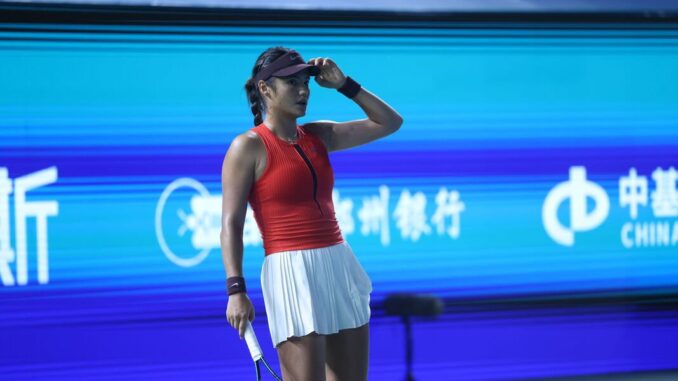
British tennis star Emma Raducanu has stirred up a surprising reaction from fans and commentators alike after remarks she made about fellow player Carlos Alcaraz’s recent look. What began as casual banter about Alcaraz’s dramatic haircut has evolved into a broader discussion about image, performance and how athletes handle off-court distractions.
The incident came to light when Alcaraz, the Spaniard and multiple Grand Slam champion, was forced to shave his head following a clippers mishap by his brother. Raducanu, who recently teamed up with Alcaraz in the mixed-doubles draw, commented publicly on the transformation. “I think he’s carrying it with confidence, it suits him and it’s about owning it,” she said. “In the end, if you choose a look like that and commit to it… it can work.” She also added, “There are divided opinions, but whatever he does isn’t going to affect his performance on court. I’m pleased to see him having fun with whatever he’s doing.”
At first sight, her words seemed innocuous — offering support to a colleague navigating an unexpected hairstyle change. But the reaction on social media and in the tennis community was far from light-hearted. One group of followers praised Raducanu’s candour and her willingness to cheer on a peer, even in an off-beat moment. Another group, however, interpreted her comments as frivolous or even dismissive of the seriousness of Alcaraz’s professional comeback and current form.
Tensions escalated when some voices began pointing to the contrast between Raducanu’s remark and the precarious shape of her own season. Having battled injuries and fitness issues, Raducanu has been striving to rebuild momentum. With Alcaraz firmly established near the top of the men’s game, some saw her focusing on hairstyle commentary as a distraction or misplaced emphasis.
One key focal point was Raducanu’s line about confidence: “In the end… it’s about owning it.” Critics argued that athletes’ commentary on style or image still carries weight — and when coming from another competitor, it can be perceived as patronising or off-message. Meanwhile, supporters of Raducanu countered that she was simply being human: acknowledging a lighter moment in a sport that often takes itself too seriously.
Amid the debate, Alcaraz’s response was relatively muted. He has not engaged in the commentary war and declined to elaborate publicly on his hairstyle-related media flurry. From his vantage, the haircut mishap, while a talking point for the press, is secondary to his preparation and focus for the upcoming tournaments.
For Raducanu, the moment highlights two things: the spotlight on her continues—even when the subject is someone else—and the fine line tennis players walk between competition, camaraderie and media-driven narratives. Her words were meant to support but ended up sparking an online flurry of opinions about propriety, priorities and the interplay between appearance and performance in professional sport.
In the end, what started as an off-beat remark about a haircut became a flashpoint for broader discussions: How much should elite athletes comment on each other’s image? Do such remarks shift focus away from on-court matters? And finally, what happens when a player rebuilding their career chooses to voice thoughts about a peer’s style?
No matter how you view it, the exchange underlines a key truth: in the modern era, even the smallest comment can reverberate across social media, sport and public perception, long after the last ball is struck.
Leave a Reply